Elementary Differential Equations 6th Edition by C. Henry Edwards, ISBN-13: 978-0132397308
[PDF eBook eTextbook]
- Publisher: Pearson College Div; 6th edition (January 1, 2007)
- Language: English
- 623 pages
- ISBN-10: 0132397307
- ISBN-13: 978-0132397308
The Sixth Edition of this acclaimed differential equations book remains the same classic volume it’s always been, but has been polished and sharpened to serve readers even more effectively. Offers precise and clear-cut statements of fundamental existence and uniqueness theorems to allow understanding of their role in this subject. Features a strong numerical approach that emphasizes that the effective and reliable use of numerical methods often requires preliminary analysis using standard elementary techniques. Inserts new graphics and text where needed for improved accessibility. A useful reference for readers who need to brush up on differential equations.
Table of Contents:
C O N T E N T S
Preface vii
CHAPTER
1 First-Order Differential Equations 1
1.1 Differential Equations and Mathematical Models 1
1.2 Integrals as General and Particular Solutions 10
1.3 Slope Fields and Solution Curves 19
1.4 Separable Equations and Applications 32
1.5 Linear First-Order Equations 46
1.6 Substitution Methods and Exact Equations 59
1.7 Population Models 74
1.8 Acceleration-Velocity Models 85
CHAPTER
2 Linear Equations of Higher Order 100
2.1 Introduction: Second-Order Linear Equations 100
2.2 General Solutions of Linear Equations 113
2.3 Homogeneous Equations with Constant Coefficients 124
2.4 Mechanical Vibrations 135
2.5 Nonhomogeneous Equations and Undetermined Coefficients 148
2.6 Forced Oscillations and Resonance 162
2.7 Electrical Circuits 173
2.8 Endpoint Problems and Eigenvalues 180
CHAPTER
3 Power Series Methods 194
3.1 Introduction and Review of Power Series 194
3.2 Series Solutions Near Ordinary Points 207
3.3 Regular Singular Points 218
3.4 Method of Frobenius: The Exceptional Cases 233
3.5 Bessel’s Equation 248
3.6 Applications of Bessel Functions 257
v
vi Contents
CHAPTER
4 Laplace Transform Methods 266
4.1 Laplace Transforms and Inverse Transforms 266
4.2 Transformation of Initial Value Problems 277
4.3 Translation and Partial Fractions 289
4.4 Derivatives, Integrals, and Products of Transforms 297
4.5 Periodic and Piecewise Continuous Input Functions 304
4.6 Impulses and Delta Functions 316
CHAPTER
5 Linear Systems of Differential Equations 326
5.1 First-Order Systems and Applications 326
5.2 The Method of Elimination 338
5.3 Matrices and Linear Systems 347
5.4 The Eigenvalue Method for Homogeneous Systems 366
5.5 Second-Order Systems and Mechanical Applications 381
5.6 Multiple Eigenvalue Solutions 393
5.7 Matrix Exponentials and Linear Systems 407
5.8 Nonhomogeneous Linear Systems 420
CHAPTER
6 Numerical Methods 430
6.1 Numerical Approximation: Euler’s Method 430
6.2 A Closer Look at the Euler Method 442
6.3 The Runge-Kutta Method 453
6.4 Numerical Methods for Systems 464
CHAPTER
7 Nonlinear Systems and Phenomena 480
7.1 Equilibrium Solutions and Stability 480
7.2 Stability and the Phase Plane 488
7.3 Linear and Almost Linear Systems 500
7.4 Ecological Models: Predators and Competitors 513
7.5 Nonlinear Mechanical Systems 526
7.6 Chaos in Dynamical Systems 542
References for Further Study 555
Appendix: Existence and Uniqueness of Solutions 559
Answers to Selected Problems 573
Index I-1
C. Henry Edwards is emeritus professor of mathematics at the University of Georgia. He earned his Ph.D. at the University of Tennessee in 1960, and recently retired after 40 years of classroom teaching (including calculus or differential equations almost every term) at the universities of Tennessee, Wisconsin, and Georgia, with a brief interlude at the Institute for Advanced Study (Princeton) as an Alfred P. Sloan Research Fellow. He has received numerous teaching awards, including the University of Georgia’s honoratus medal in 1983 (for sustained excellence in honors teaching), its Josiah Meigs award in 1991 (the institution’s highest award for teaching), and the 1997 statewide Georgia Regents award for research university faculty teaching excellence. His scholarly career has ranged from research and dissertation direction in topology to the history of mathematics to computing and technology in the teaching and applications of mathematics. In addition to being author or co-author of calculus, advanced calculus, linear algebra, and differential equations textbooks, he is well-known to calculus instructors as author of The Historical Development of the Calculus (Springer-Verlag, 1979). During the 1990s he served as a principal investigator on three NSF-supported projects: (1) A school mathematics project including Maple for beginning algebra students, (2) A Calculus-with-Mathematica program, and (3) A MATLAB-based computer lab project for numerical analysis and differential equations students.
David E. Penney, University of Georgia, completed his Ph.D. at Tulane University in 1965 (under the direction of Prof. L. Bruce Treybig) while teaching at the University of New Orleans. Earlier he had worked in experimental biophysics at Tulane University and the Veteran’s Administration Hospital in New Orleans under the direction of Robert Dixon McAfee, where Dr. McAfee’s research team’s primary focus was on the active transport of sodium ions by biological membranes. Penney’s primary contribution here was the development of a mathematical model (using simultaneous ordinary differential equations) for the metabolic phenomena regulating such transport, with potential future applications in kidney physiology, management of hypertension, and treatment of congestive heart failure. He also designed and constructed servomechanisms for the accurate monitoring of ion transport, a phenomenon involving the measurement of potentials in microvolts at impedances of millions of megohms. Penney began teaching calculus at Tulane in 1957 and taught that course almost every term with enthusiasm and distinction until his retirement at the end of the last millennium. During his tenure at the University of Georgia he received numerous University-wide teaching awards as well as directing several doctoral dissertations and seven undergraduate research projects. He is the author of research papers in number theory and topology and is the author or co-author of textbooks on calculus, computer programming, differential equations, linear algebra, and liberal arts mathematics.
What makes us different?
• Instant Download
• Always Competitive Pricing
• 100% Privacy
• FREE Sample Available
• 24-7 LIVE Customer Support

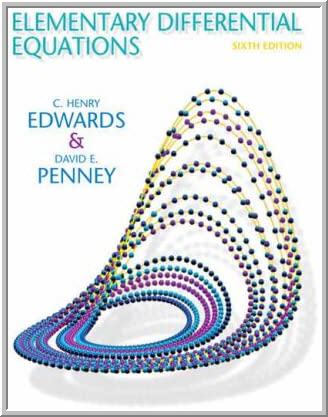
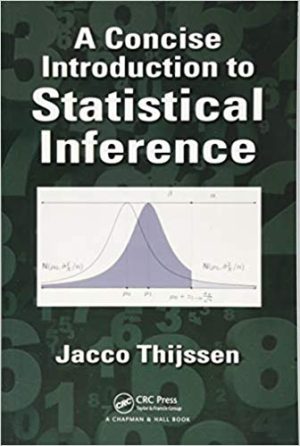
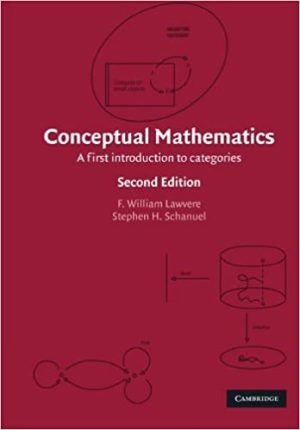



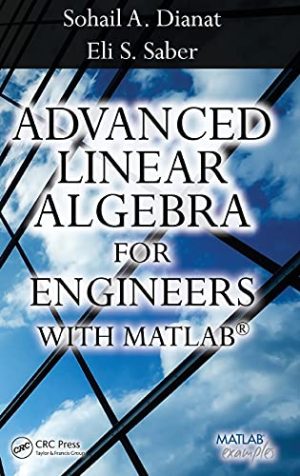
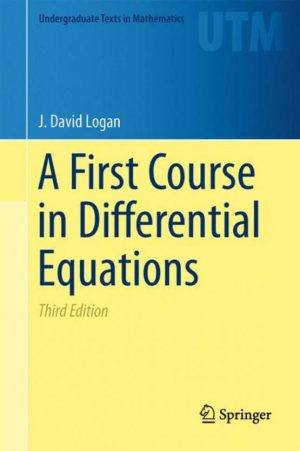
Reviews
There are no reviews yet.